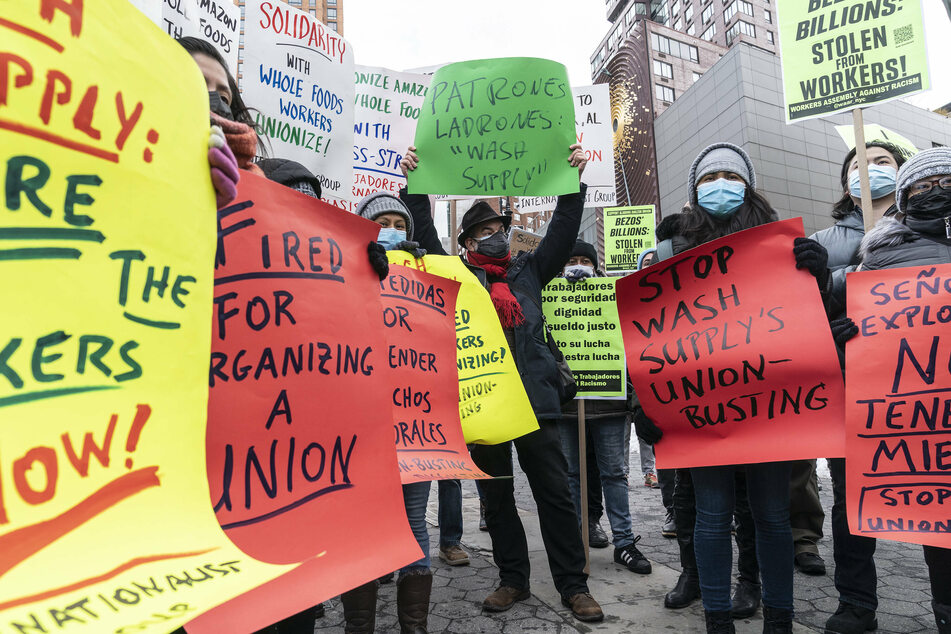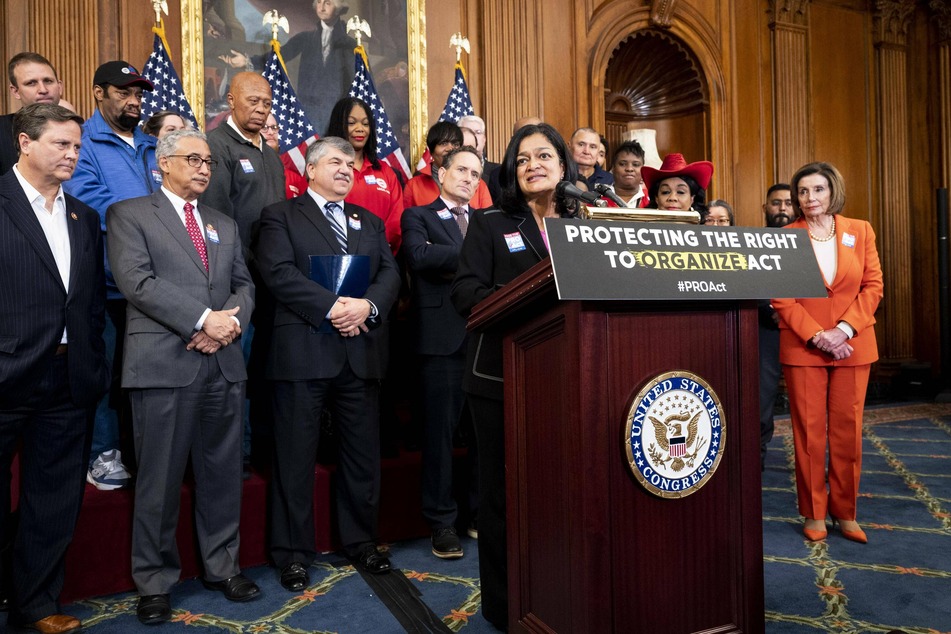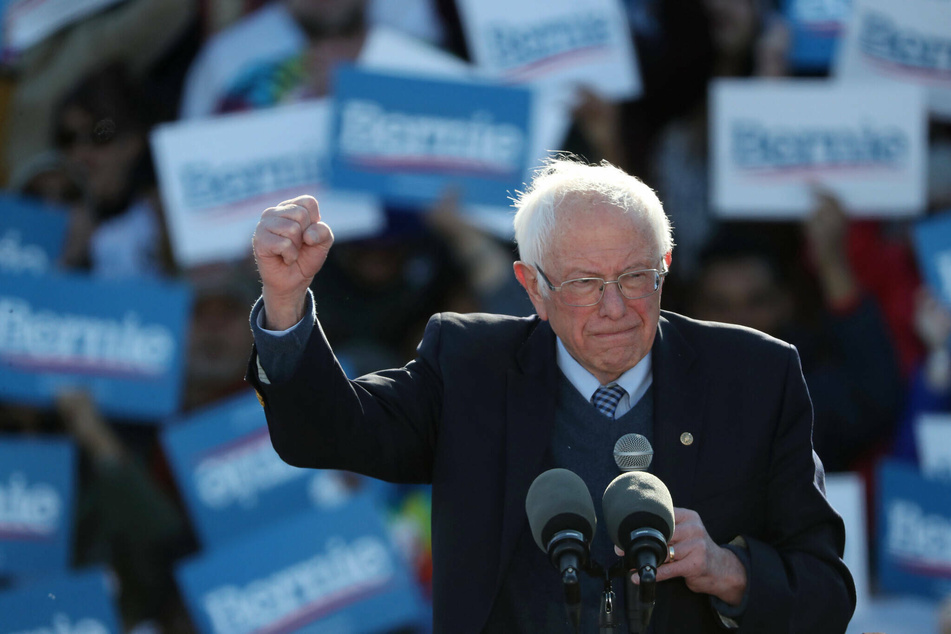"Power to the workers": Progressives commemorate Labor Day by renewing calls to pass the PRO Act
Washington DC – Squad members and other progressive politicians rang in Labor Day by urging the Senate to do away with the filibuster and pass the PRO Act.

The Protecting the Right to Organize (PRO) Act was passed in the House in March along mostly party lines, but it has since stalled in the Senate.
Advocates have called the legislation the most consequential revamping of labor laws since the New Deal in the 1930s.
The bill outlines a host of provisions intended to provide workers greater security when organizing for better wages, benefits, and safety in the workplace.
Concretely, the bill would end mandatory anti-union meetings. As things stand now, employers can require workers to attend sessions that detail all the alleged disadvantages of unions, as occurred during the high-profile unionization vote at an Amazon warehouse in Alabama earlier this year.
The bill would also end "right to work" laws currently in place in 27 states, which allow people who don't pay union dues to receive union benefits. This weakens unions by depriving them of funds and membership, stripping them of their bargaining power.
Employers would be required to negotiate with unions until a first contract is reached and would not be able to delay union elections, fixing two of the biggest obstacles to organizing.
Workers would also receive additional protections, including a ban on employers permanently replacing striking employees.
Secondary strike limitations would also be removed, allowing unions to encourage workers in connected jobs to participate in boycotts and so amplify the strikers' negotiating power.
The PRO Act would prevent employers from misclassifying employees as "independent contractors" as a means of limiting access to full workers' rights and restricting unionization efforts.
Progressive politicians come out in support of PRO Act

Members of the Squad and other progressive politicians used Labor Day as an opportunity to remind fellow lawmakers about the importance of passing the PRO Act.
"So much of what we take for granted in this country is due to the tireless work of the labor movement. We need to protect and grow the power of working people everywhere. To start: let's turn the PRO Act into law," said New York Rep. Jamaal Bowman.
Minnesota Rep. Ilhan Omar agreed: "The Senate must pass the PRO Act to put power back in the hands of workers."
New York Rep. Mondaire Jones simply tweeted, "Happy Labor Day. Abolish the filibuster and pass the PRO Act."
Passing the PRO Act is the best way Congress can honor and strengthen the labor movement, they argue.
But doing so seems to require some big structural changes within the legislative branch.
The PRO Act's path forward

The PRO Act is currently experiencing a similar fate as much of the most consequential Democratic-sponsored legislation aimed at expanding political and economic enfranchisement.
Senate Democrats with their narrow majority are unable to get the 60 votes necessary to overcome a filibuster, and even within their own camp, there is a familiar holdout – Arizona Senator Kyrsten Sinema.
Unless the filibuster is removed or significantly reformed, or Sinema and 10 Republican colleagues suddenly see the light, the PRO Act doesn't stand much of a chance of passing.
That's why some Democrats and labor advocates are working to get parts of PRO Act included in $3.5-trillion Democratic reconciliation bill, including empowering the NLRB to penalize employers if they violate workers' rights.
Still, the usual suspects – Sinema and West Virginia Senator Joe Manchin – have expressed doubts over passing the reconciliation bill with its current price tag, making it unclear whether Democrats will be able to advance many of their boldest reforms.
Nevertheless, the brain behind the budget, Vermont Senator Bernie Sanders, remains confident he can get the 50 votes necessary to send the reconciliation bill to Biden's desk.
Cover photo: IMAGO / ZUMA Wire

